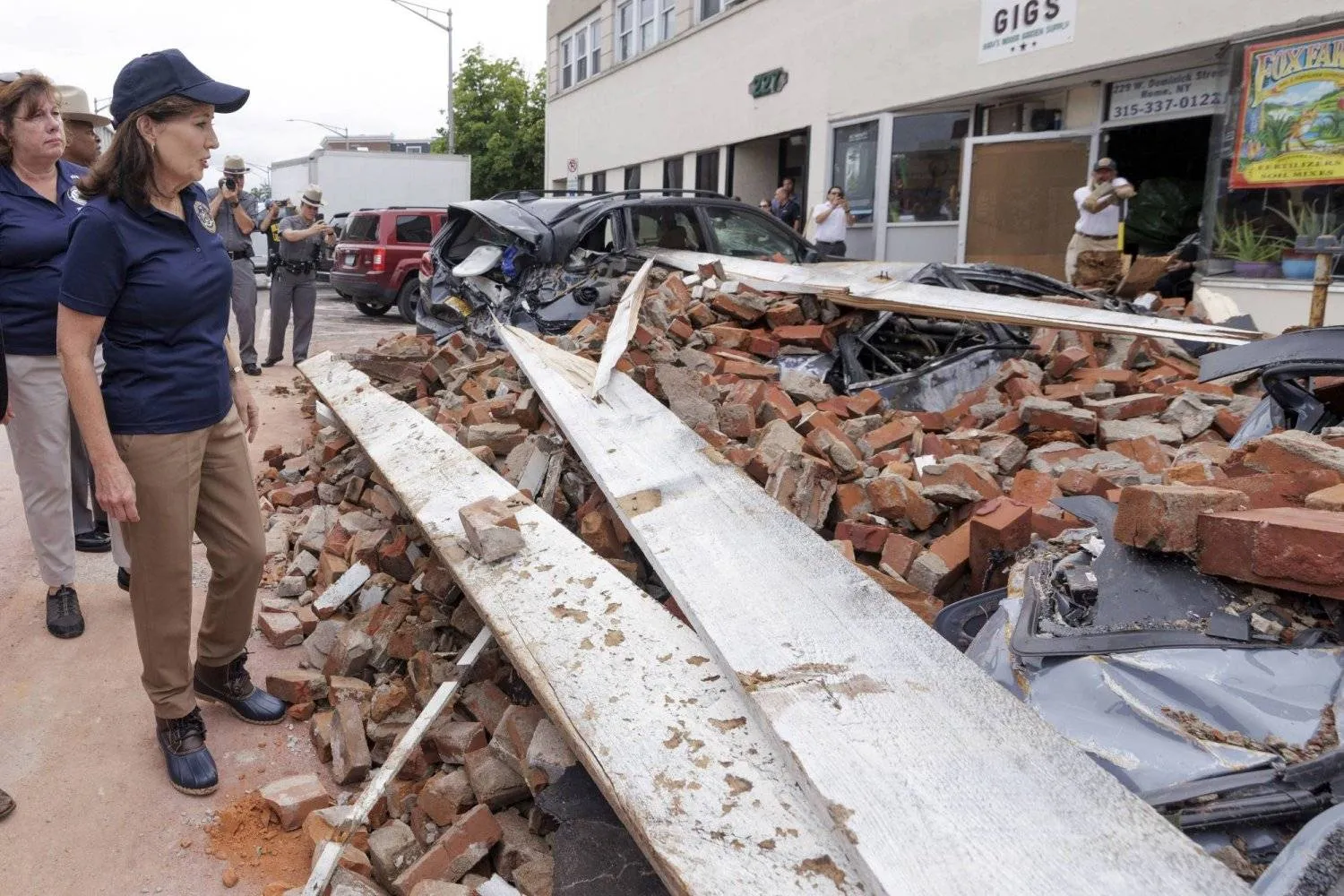A storm powerful enough to knock a B-52 bomber off a platform and tear the roof off a 19th century church ripped through central New York state, killing a man who went outside to check on his antique car.
Governor Kathy Hochul on Wednesday surveyed the destruction from Tuesday's storm and declared a state of emergency for the entire state, which remained in effect with damaging wind and heavy rain expected in many parts of New York on Wednesday night, Reuters reported.
One of the hardest hit areas was the Mohawk Valley. A confirmed tornado rolled through the city of Rome, destroying four buildings and causing major structural damage to 22 other structures, said Hochul at a press conference in Rome. The storm was so powerful that it knocked a 185,000-pound (83,000-kg) B-52 bomber jet off its platform at the Griffiss Air Force Base, according to Hochul.
"You cannot imagine the impact of seeing from the sky how vast the destruction is. When you see entire swaths of trees just collapsed like they were toothpicks, and then houses - the roofs gone," said Hochul.
She spoke in front of St. Mary's Church, built in 1862 according to the church's website, with much of its roof torn off by the storm.
At least three other reported tornadoes touched down in nearby Hamilton County and Warren County, according to NBC5 meteorologists. The National Weather Service has not yet confirmed them as tornadoes.
Robert Popple, 82, from the village of Canastota, west of Rome, was identified as the person who died during the storm. A neighbor reported that he went outside to check on his antique car when he was swept away, Hochul said.
Roughly 300,000 customers across New York State lost power during the height of the storm and 38,000 were still without electricity. Nearly half of those still without power are in Oneida County.
Hochul said that an unusual number of weather events have occurred in her three years as governor, including the current heat wave, recent flash flooding in Lewis County and a record-breaking 42 tornado warnings issued across New York last week, seven of which were confirmed.
She also warned New York residents to expect compromised air quality in the coming week due to Canadian wildfires, a reminder of last June's wildfires that gave Syracuse and New York City the worst air quality in the world on some days.
"These extreme weather events are no longer the abnormal. They are the new normal," she said.









